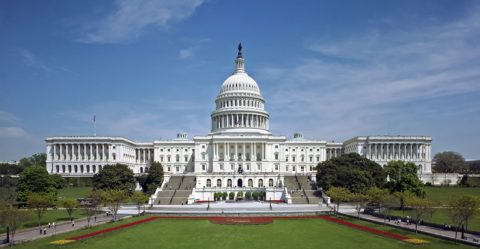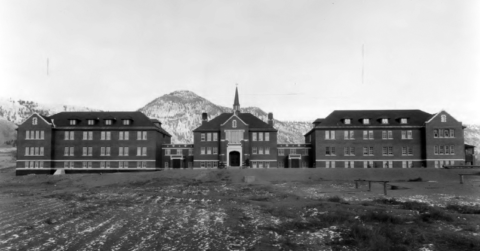In the latest edition of his newsletter (newsletter@mightyheaton.com), Andrew Heaton considers the pro and con arguments for D.C. statehood:

The western front of the United States Capitol. The Neoclassical style building is located in Washington, D.C., on top of Capitol Hill at the east end of the National Mall. The Capitol was designated a National Historic Landmark in 1960.
Photo via Wikimedia Commons.
The rhetorical pros and cons of DC statehood go like this:
PRO: If we truly believe in “no taxation without representation” and representative government, how can we deprive Washingtonians of their own voting representatives? Bla bla bla racism
CON: The power of the federal government is derived from and balanced by that of the states. To make the federal seat a state in its own right is to create an imperial capital, with too much concentrated power. Bla bla bla dead white guy, Dr. Seuss, veterans
I actually happen to agree with both of these positions. Thus I am an advocate of DC statehood, but predicated on the condition that every federal agency is redistributed to other states — possibly even to Canadian provinces. Congress, the White House, and the Supreme Court can all stay — it’s heavy to lug stacks of marble to Cleveland. The Departments of Education, Commerce, High School Reunions, and so on should be redistributed throughout the country so that every state gets access to cushy, air-conditioned federal pensions.
A similar idea has previously been floated by Mitch Daniels (one of America’s six remaining sane Republicans) and more recently by Josh Hawley and Martha Blackburn (who are not). The biggest Democratic counter to the proposal is that the relocation expenses would be astronomical, making agency redistribution impractical.
While I am always pleasantly startled by a Democrat decrying a massive federal spending hike, redistribution of resources, and a national job creation program on the grounds of practicality and balanced budgets, I think the criticism is less valid in a post-Covid remote worker world. If 90% of the federal government operated remotely in 2020, is there any reason we couldn’t just buy some air conditioned warehouses in Iowa to plop the Department of Agriculture into? While the up-front costs would be considerable, the long-term savings would balance out. Buying a townhouse in Georgetown is roughly as expensive as buying a stadium in Idaho. Redistribute the federal agencies, and we can adjust budgets and the salaries of new hires to reflect that.
Emptied of its resident apparatchiks, Washington would become “The Museum State”. All the cavernous federal agencies could be converted into historical exhibits, art galleries — and if we ever ran out of stuff to display — paintball galleries. (Maybe both?) Two new senators, and Elizabeth Holmes Norton can start voting on stuff.






